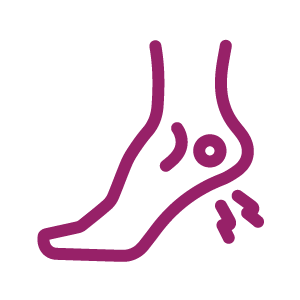Diabetes
Diabetes mellitus is a chronic metabolic condition that leads to high blood sugar. Insulin moves sugar from the blood into the cells to be stored/used for energy.
With diabetes, your body either
- doesn’t produce enough insulin or
- can’t effectively use the insulin it does produce.
Types of Diabetes
Different Types of Diabetes
Type 1 Diabetes
- It is an autoimmune disease.
- The immune system attacks and destroys cells in the pancreas, where insulin is produced.
Type 2 Diabetes
- When the body becomes resistant to insulin, sugar builds up in your blood leading to this condition.
Prediabetes
- When blood sugar is higher than normal, however, it is not high enough to be diagnosed as type 2 diabetes.
- It is considered the stage before Diabetes and hence, prediabetes.
Gestational Diabetes
- High blood sugar during pregnancy.
- Insulin blocking hormones caused by the placenta causes it.
Risk Factors
Type 1 Diabetes
- You are likely to get this as a teenager or a child, or you have a parent or sibling with this condition.
Type 2 Diabetes
- Overweight
- Genetics
- Physically active
- Previously diagnosed with gestational diabetes
- Prediabetes
- High blood pressure, high cholesterol, or high triglycerides
Gestational Diabetes
- Overweight
- Over 25 years old
- Had gestational diabetes during a past pregnancy
- Have given birth to a baby weighing more than 4 kgs
- A family history of type 2 diabetes
- Polycystic ovary syndrome (PCOS)
Book an Appointment
Diabetes-related Complications
- A severe complication of type 1 and type 2 Diabetes. It is a type of nerve damage caused by long-term high blood sugar levels.
- If you have diabetes and notice numbness, tingling, pain, or weakness in your hands or feet, you should see your doctor.
- This could further lead to diabetic foot and ulcerations, which could become a serious condition on its own if left untreated.
A type of progressive kidney disease that could occur in people who have diabetes. It affects people with type 1 and type 2 diabetes, and the risk increases with the duration of the disease and other risk factors like high blood pressure and a family history of kidney disease.
- A condition that occurs as a result of damage to the blood vessels of the retina in diabetic patients.
- It can develop if you have type 1 or 2 diabetes and a long history of uncontrolled high blood sugar levels.
- What may start off as mild vision problems, could be a serious condition if left untreated.
Symptoms of Diabetes

Increased hunger

Increased thirst

Weight loss

Frequent urination

Blurry vision

Extreme fatigue

Sores that take long to heal

